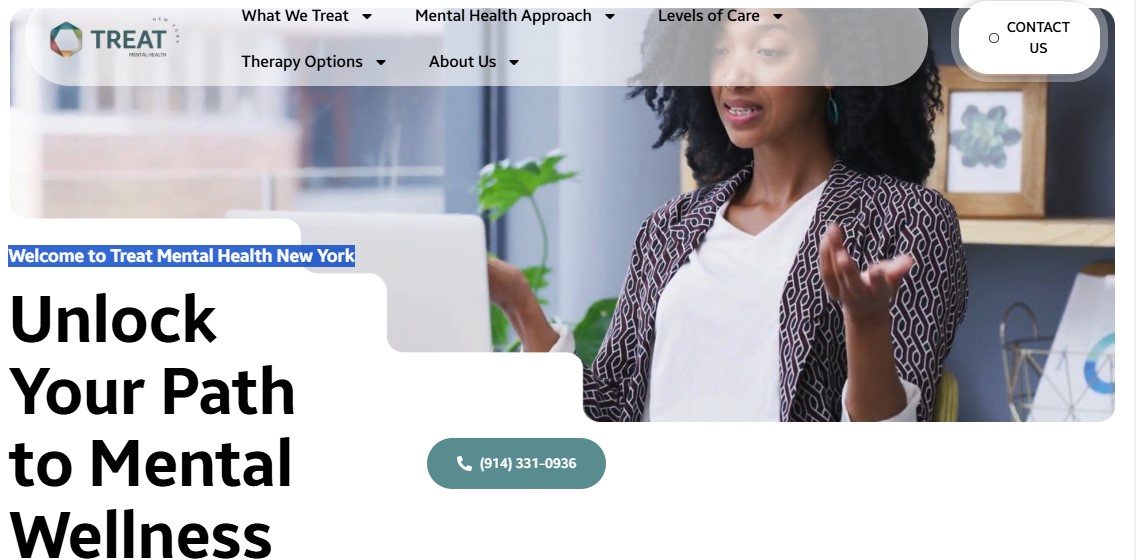Right now, our fast-paced society has made mental health an essential component of overall well-being. The need for mental health treatments is growing, and online psychiatry services have become a useful remedy. Yet, how does this contemporary method enhance mental health outcomes? Let’s examine the several advantages that virtual psychiatry can offer.
Comprehending Online Psychiatry
Virtual psychiatry refers to providing mental health care through digital platforms, such as video calls, phone consultations, or chat services. It allows patients to connect with licensed psychiatrists from the comfort of their homes. This method has gained immense popularity, especially during the pandemic, as it offers convenience and accessibility.
The flexibility of virtual psychiatry enables individuals to seek help without the barriers of traditional in-person visits, such as commuting or scheduling conflicts. But beyond convenience, virtual psychiatry offers several significant benefits that can lead to improved mental health outcomes.
Breaking Down Barriers to Access
One of the most significant advantages of virtual psychiatry is its ability to break down geographical barriers. Many people live in remote areas where mental health services are limited or nonexistent. Virtual psychiatry brings professional help directly to those who need it, regardless of location.
This accessibility means individuals no longer have to wait weeks or even months for an appointment. With virtual consultations, they can receive timely support, which is critical for managing conditions like anxiety, depression, and other mental health disorders. Timely intervention can lead to better health outcomes and a quicker return to daily life.
Reducing Stigma and Anxiety
Seeking help for mental health issues can often be daunting. Many individuals feel anxious about walking into a psychiatrist’s office, fearing judgment or stigma from others. Virtual psychiatry helps alleviate this concern. Patients can attend appointments in their own spaces, making the experience feel less intimidating and more comfortable.
Furthermore, the anonymity that comes with virtual visits can encourage individuals who may have otherwise avoided seeking help to take that crucial first step. By reducing the stigma associated with mental health treatment, virtual psychiatry promotes more individuals to prioritize their mental well-being.
Offering Personalized Care
Virtual psychiatry isn’t a one-size-fits-all approach. Many platforms allow for personalized care tailored to individual needs. Psychiatrists can leverage various tools, such as assessments, surveys, and questionnaires, to gain insights into a patient’s condition and preferences.
This personalization helps create a treatment plan that resonates with the patient. Additionally, virtual platforms enable psychiatrists to track a patient’s progress more efficiently. This ongoing evaluation can lead to timely adjustments in treatment, ensuring the approach remains effective over time.
Enhancing Patient Engagement
Engagement is crucial for successful mental health treatment. Virtual psychiatry encourages active participation from patients in their care. Many online platforms come with user-friendly interfaces that allow patients to easily access their treatment plans, resources, and progress reports.
Moreover, virtual settings often foster more open communication between patients and psychiatrists. Patients may feel more comfortable sharing their thoughts and feelings in a familiar environment. This enhanced engagement can lead to a deeper therapeutic alliance, ultimately improving treatment outcomes.
Flexible Scheduling
Life can be hectic, and finding time for mental health appointments can be challenging. Virtual psychiatry offers the flexibility of scheduling appointments at times that work best for the patient. This adaptability ensures that individuals are more likely to stick to their treatment plans.
For those balancing work, family, and personal commitments, the convenience of virtual appointments can make a significant difference. Whether it’s a lunch break or after the kids are asleep, patients can find a suitable time to focus on their mental health without added stress.
Access to a Broader Range of Specialists
Virtual psychiatry opens the door to a wider variety of mental health professionals. Patients are no longer limited to local providers; they can connect with specialists from across the country or even internationally. This access to diverse expertise can be particularly beneficial for individuals seeking treatment for specific conditions.
For example, if someone is looking for a psychiatrist specializing in PTSD or eating disorders, they can find experts who may not be available in their immediate area. This broader selection can lead to better matches between patients and providers, enhancing the quality of care received.
Incorporating Technology for Better Outcomes
In today’s digital age, technology plays a vital role in mental health treatment. Virtual psychiatry often utilizes innovative tools and resources that enhance the patient experience. Many platforms incorporate features like symptom tracking, digital journaling, and interactive exercises to aid in recovery.
These tools empower patients to take charge of their mental health by actively monitoring their progress and identifying patterns. This proactive approach not only helps individuals understand their conditions better but also fosters a sense of agency in their treatment.
Overcoming Limitations of Traditional Therapy
Traditional in-person therapy has its limitations, including logistical challenges, limited appointment availability, and the potential for burnout in both patients and providers. Virtual psychiatry addresses many of these issues, providing a more sustainable care model.
By minimizing the logistical hurdles, virtual psychiatry can help prevent gaps in treatment, ensuring continuity of care. For many, this consistent support is crucial in maintaining progress and improving mental health outcomes.
Read More:
How Cyfersoft Is Redefining Cyber Security in the Digital Age
Final Thoughts
Virtual psychiatry represents a significant advancement in mental health care, offering numerous benefits that can lead to improved outcomes. By breaking down barriers, reducing stigma, and providing personalized, flexible care, it has the potential to transform how individuals approach their mental health. As technology continues to evolve, virtual psychiatry may become an integral part of the mental health landscape, making care more accessible and effective for everyone.



